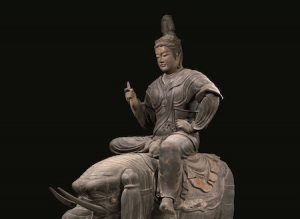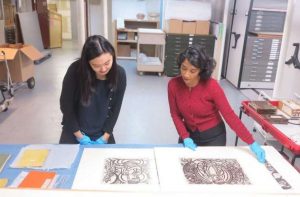
Thailand’s senate on Tuesday passed a landmark bill that will see the kingdom become the first nation in Southeast Asia to legalize marriage for LGBTIQA+ couples, and the third in Asia. The Thai senate passed the final reading of a marriage equality law with a vote of 130 senators in favor, four against, and with 18 abstentions. The bill will be forwarded to the royal palace for endorsement by King Maha Vajiralongkorn, and will formally come into effect 120 days after being published in the Royal Gazette.
The new Marriage Equality Act passed on 18 June follows an historic lower house ballot in March this year.1 The bill revises the language used in Thailand’s Civil and Commercial Code with regard to married couples, changing “men and women” and “husband and wife” to “individuals” and “marriage partners.”
Taiwan became the first Asian government to legalize same-sex marriage in 2019, while Nepal has taken progressive steps toward equality, most recently in November 2023, when Nepal’s government, under an interim order from the Supreme Court, recognized a marriage between two Nepalis of the same legal gender for the first time.

LGBTIQA+ advocates, activists, and community allies in Thailand expressed delight that the government had successfully taken an important step forward to becoming a more tolerant and equitable society.
“Thailand has taken a historic step toward becoming the first country in Southeast Asia to legalize marriage for LGBTI couples. This landmark moment is a reward for the tireless work of activists, civil society organizations, and lawmakers who have fought for this victory,” said Amnesty International’s Thailand Researcher Chanatip Tatiyakaroonwong in a recent statement. “While there is no doubt that the legalization of marriage for LGBTI couples is a key milestone for Thailand, much more must be done to guarantee full protection of LGBTI people in the country. LGBTI people in Thailand continue to face many forms of violence and discrimination, including but not limited to technology-facilitated gender-based violence which often targets human rights defenders.” (Amnesty International)
Although Buddhist-majority Thailand, which decriminalized homosexuality in 1956, is broadly open to and accepting of non-mainstream sexual and gender identities, LGBTIQA+ people still experience discrimination and prejudice from many aspects of society in day-to-day life, where traditional mores continue to hold sway. Activists say that LGBTIQA+ people continue to face social hurdles in education, the workplace, the healthcare system, the military, and the monastic community, and are often rejected by their own families as a result of traditional patriarchal expectations.

The Bangkok-headquartered International Network of Engaged Buddhists (INEB), a worldwide network of individuals and organizations committed to promoting and working toward social justice, environmental sustainability, and world peace, has been a key agent of change for social inclusivity in Thailand and in Southeast Asia. INEB is particularly active in working toward social empowerment for marginalized groups, which includes building a sustainable foundation of support for gender equality and inclusivity for the LGBTIQA+ community.2
“Over the past two years, since the implementation of our Sangha for Peace program,3 which works with intra- and interfaith social engagement stakeholders in the region, INEB has established a much closer relationship with the LGBTIQA+ community,” Anchalee Kurutach, a member of INEB’s Executive Committee and coordinator of INEB’s Regional Network for Peacebuilders project, told BDG.
“In particular, we have two key members of the Sangha for Peace who are leaders and activists from the LGBTIQA+ community. They have played a significant role in the work of the Sangha for Peace, and have helped to educate all of us about the struggles and the suffering—and the resilience—of the community. As a result, we have become their friends and their allies, and they have helped us to transform a lot of our own ignorance, prejudices, and preconceptions through our kalyana-mitratra4 with them.
“I truly admire Sangha for Peace member Hua Boonyapisomparn and the way that her spiritual practice is fundamental to, and expressed through, her work as a social activist. Even when Hua was arguing for LGBTIQA+ rights in the Thai parliament—when people were saying things that were quite condescending, disrespectful, or even hateful—she was able to remain calm and composed in her interactions and responses. And Hua credits her remarkable equanimity to her Buddhist practice.
“In the same way, INEB works by combining spiritual practice and social activism. So in this sense, Hua is a role model whom we cherish and appreciate so much! We bow to our LGBTIQA+ activists for leading the way, and we pray that Thailand will become more and more open and equitable for all segments of society!”

Formed in 1989 by the renowned Buddhist scholar and activist Prof. Sulak Sivaraksa, INEB works to promote understanding, cooperation, and connection among inter-Buddhist and inter-religious groups, and to actively address urgent global issues such as human rights, conflict resolution, and environmental crises. INEB has founded and operates social projects and outreach programs across the region aimed at overcoming suffering and empowering vulnerable communities through the practice of the Dharma and social engagement. INEB’s initiatives include education and training programs, community development projects, advocacy and lobbying efforts, and interfaith dialogue.
Anchalee noted that although INEB members were delighted that the marriage equality bill would come into effect in 120 days, the victory marked a beginning rather than a conclusion.
“We should also recognize that this work didn’t begin last year or the year before; this is the result of the community in Thailand fighting for equality for more than 20 years,” she explained. “I am personally overjoyed to see this marriage equality bill pass with a majority vote, but there are still so many other barriers within Thai politics and within Thai society that are in need of the same kind of support. It’s our fervent wish that this can be a watershed moment for society leading to equal rights on other fronts.
“Although the passing of this bill is extremely laudable, and we at INEB are thrilled that the LGBTIQA+ community’s long struggle has finally reached this historic milestone, this is not the end of the road; rather it’s the end of the first major chapter in creating a more equitable society for all marginalized people.”
Thailand is a predominantly Theravada Buddhist country, with 93.5 per cent of the nation’s population of 69 million identifying as Buddhists, according to government census data for 2018. The Southeast Asian kingdom has some 40,000 temples and around 300,000 Buddhist monks. While communities of female renunciants also exist, including fully ordained female monks, the monastic authorities in Thailand have never officially recognized the ordination of women, and bhikkhunis do not yet receive the same level of societal acceptance as their male counterparts.
1 Thailand Takes a Historic Step Closer to Legalizing Same-Sex Marriage (BDG)
4 Kalyana-mitrata (Skt.), kalyaṇa-mittata (Pali); the Buddhist concept of virtuous spiritual friendship.
See more
International Network of Engaged Buddhists
INEB – International Network of Engaged Buddhists (Facebook)
Project Brief: The Sangha for Peace (INEB)
Thailand: Passing of marriage equality bill a triumphant moment for LGBTI rights (Amnesty International)
Senate passes landmark bill recognising marriage equality (Bangkok Post)
House passes same-sex marriage law (Bangkok Post)
Related news reports from BDG
International Women’s Meditation Center Foundation Announces Outstanding Buddhist Women for 2024
Thai Lawmakers Move Forward on Marriage Equality as Bangkok Celebrates Pride Parade
Buddhist Bhutan Becomes the Latest Asian Nation to Decriminalize Homosexuality
Buddhist Monk Seeks Equality, Acceptance for Thailand’s LGBT+ Communities
Thailand Moves to Recognize Same-sex Unions












